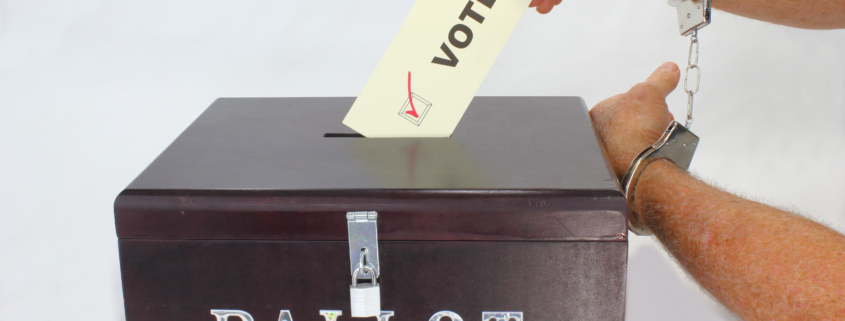11 Days Remaining
It is well known that the United States has a prison crisis. As of 2016, there were 2.3 million people incarcerated in this country. This number just applies to those that were actually in prison. There is a whole percentage of the population that has already served their sentence that have been thrown back into society, with their right to participate in civil society very volatile.
The right to vote has been a complicated subject in regards to those who are, or have been, incarcerated. Felony enfranchisement has been a topic of contention for many years, and in 2019, thousands of people with criminal records became eligible to vote from Nevada to Colorado, to Louisiana and Kentucky.
Voting rights for the currently or formerly incarcerated vary greatly from state to state. The American Civil Liberties Union states that a patchwork of state felony disenfranchisement laws prevent approximately 5.85 million Americans with felony (and in several states, misdemeanor) convictions from voting. This is a significant number, no matter what way you look at it.
For those in jail or prison, even they are legally eligible to vote, there are many unofficial policies that act as barriers to their ability to exercise that right. There is also a lot of confusion amidst the public and those affected as to what rights people with felony convictions retain. When it comes to voting, there is no easy or straightforward answer. The differences across state lines are drastic. This data comes from the National Conference of State Legislatures:
- In the District of Columbia, Maine and Vermont, felons never lose their right to vote, even while they are incarcerated.
- In 16 states, felons lose their voting rights only while incarcerated, and receive automatic restoration upon release.
- In 21 states, felons lose their voting rights during incarceration, and for a period of time after, typically while on parole and/or probation. Voting rights are automatically restored after this time period. Former felons may also have to pay any outstanding fines, fees or restitution before their rights are restored as well.
- In 11 states felons lose their voting rights indefinitely for some crimes, or require a governor’s pardon in order for voting rights to be restored, face an additional waiting period after completion of sentence (including parole and probation) or require additional action before voting rights can be restored.
Progress has certainly been made in the past 25 years, as many states have made reforms to their laws. However, about 5.2 million Americans remain disenfranchised, or 2.3 percent of the voting age population. These figures provided by the research and advocacy center, The Sentencing Project, are astounding.
One point worth noting is that even if people with felony convictions do not face any legal barriers to their right to vote, numbers indicate that their representation at the polls is low anyways. According to a 2017 study on discretionary disenfranchisement done by researchers Marc Meredith and Michael Morse, of the six states they studied, only between 8 percent and 14 percent of ex-felons cast ballots in the 2008 and 2012 presidential elections after having their rights restored. There are too many potential explanations as to why this is, and we will save that for another blog post. One thing remains indisputable, every American citizen should explicitly know their rights, especially when it comes to voting. It then becomes a choice, as to whether you participate in this crucial part of civil society.





Leave a Reply
Want to join the discussion?Feel free to contribute!